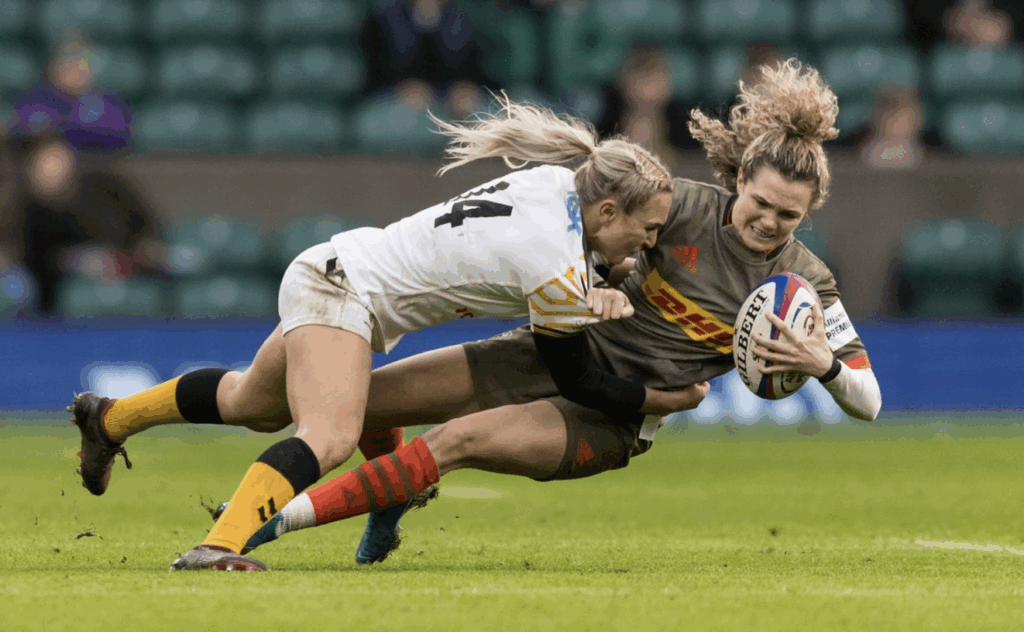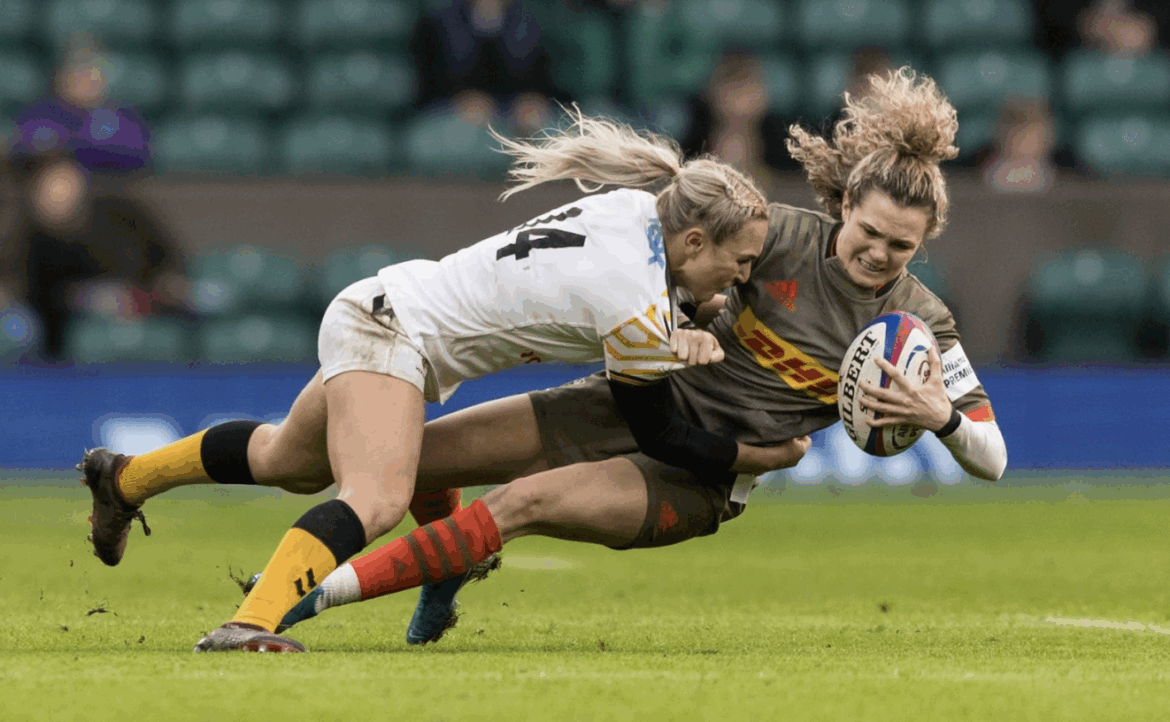4.2K
England’s Ellie Kildunne suffered a whiplash head injury during Saturday’s 47-7 World Cup victory over Australia, forcing her withdrawal from the upcoming quarter-final against Scotland. The 2024 World Player of the Year now faces a mandatory 12-day stand-down period under current concussion protocols.
Her injury occurred early in the second half at Brighton’s Amex Stadium, providing a case study for examining rugby safety measures across all levels of competition.
Premiership Rugby statistics show concussion remains the most common match injury, accounting for 25% of all reported injuries for five consecutive seasons. Research published in the British Journal of Sports Medicine reveals Rugby 7s has significantly higher concussion rates than Rugby 15s, with a risk ratio of 1.84.
Professional Rugby 7s players face mean recovery periods of 19.2 days compared to 10.1 days for Rugby 15s players. The main causes differ between formats: tackling accounts for 44.1% of concussions in Rugby 7s, while collisions cause 43.6% in Rugby 15s. Immediate removal rates from matches are higher in 7s (69.7%) compared to 15s (46.7%).
Table of Contents
School Rugby Safety Implementation

A New Zealand study of 477 high school rugby players found 62% had experienced suspected concussions. Only 22% received medical clearance before returning to play, while 52% made independent decisions about comeback timing. Less than half of players understood return-to-play guidelines.
South African research examining 143 high school coaches revealed knowledge scores of 77-80% for general concussion awareness but only 62% for return-to-play protocols.
Coaches at smaller schools demonstrated significantly lower BokSmart accreditation rates and qualification levels, resulting in uneven safety implementation across different school categories.
The Head Injury Assessment (HIA) replaced the previous five-minute sideline evaluations. Adults face a minimum 12-day recovery period, while under-18 players require 21 days before returning to competition. Ireland extends this to 21 days for adults and 23 days for under-20 players. Australia implements 12-day minimums for adults and 21 days for under-18 players.
Premiership Rugby requires online concussion education modules for all players, coaches, and referees. Pre-season cognitive testing establishes baseline measurements for comparison after suspected head injuries. Independent medical review panels assess every concussion case to remove decision-making pressure from team medical staff.
Former Player Diagnoses
Steve Thompson, England’s 2003 World Cup winner, received an early-onset dementia diagnosis at age 42. Medical assessments estimate he sustained over 100,000 sub-concussions during his professional career. Thompson cannot recall winning the World Cup or being in Australia for the tournament.
Alix Popham, capped 33 times for Wales, was diagnosed with probable chronic traumatic encephalopathy at age 41.
His neurologist estimates 100,000 sub-concussions across his 14-year professional career. Popham has lost memory of large portions of his playing career, including international matches at Twickenham.
Participation Statistics
Between 2002 and 2023, 174 English rugby clubs disbanded while only 36 new clubs formed. Amateur participation rates show declining trends as players recognize potential long-term health risks affecting employment prospects.
Rugby fans still gather to support their teams during major tournaments. For those seeking additional engagement with matches, best UK sports betting sites without restrictions (GamCare, BetBlock, Gamban, etc.) provide betting options on favorite teams.
Legal Actions
Over 550 former rugby players have initiated legal proceedings against World Rugby, Rugby Football Union, and Welsh Rugby Union for alleged negligence regarding brain trauma management. The cases are scheduled for trial in 2025.
Thompson, Popham, and Michael Lipman lead the test group for potentially broader legal action. Their legal representatives handle cases for over 100 former players ranging from their 20s to 50s showing neurological symptoms.
Training Protocol Changes
Contact training sessions now follow strict frequency guidelines. Tackling technique education emphasizes proper head positioning to reduce contact incidents. Rule modifications target dangerous play, with referees receiving enhanced training on identifying and penalizing high-risk actions.
Women’s rugby applies identical safety protocols across all competition levels. The 12-day stand-down period affecting Kildunne demonstrates gender-neutral implementation of medical guidelines developed through analysis of male and female player data.
Return-to-Play Requirements
Current guidelines mandate eight-step management processes following suspected concussions. Initial stages cover immediate injury response and medical assessment. Subsequent phases involve gradually increasing activity under medical supervision.
Final clearance requires written approval from healthcare professionals trained in concussion evaluation. Players must remain symptom-free during progressive activity stages before returning to full contact training and match participation.
These protocols extend from grassroots rugby through international competition, reflecting scientific understanding of brain injury recovery developed through comprehensive analysis of professional player experiences and medical research data.



